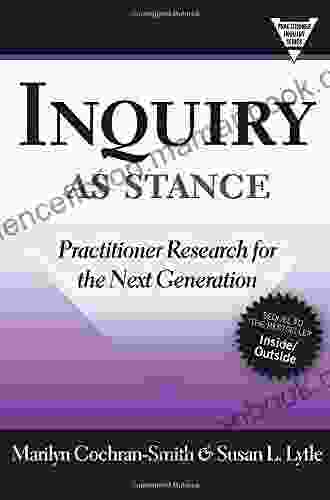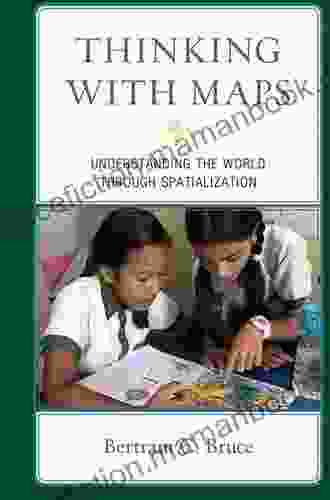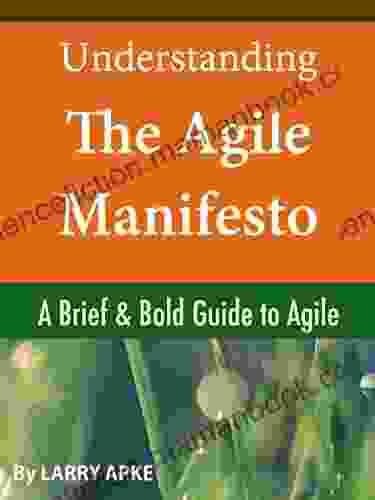Practitioner Research for the Next Generation Practitioner Inquiry Series

Practitioner research is a form of research conducted by practitioners in their own professional context. It is a systematic and rigorous process that involves the collection and analysis of data to improve practice. Practitioner research can be used to investigate a wide range of topics, including the effectiveness of interventions, the development of new teaching methods, and the impact of policy changes.
4.2 out of 5
| Language | : | English |
| File size | : | 1259 KB |
| Text-to-Speech | : | Enabled |
| Enhanced typesetting | : | Enabled |
| Word Wise | : | Enabled |
| Print length | : | 416 pages |
| Screen Reader | : | Supported |
Practitioner research is important for the next generation of practitioners because it allows them to develop the skills and knowledge they need to be effective in their field. Through practitioner research, practitioners can learn how to identify problems, collect and analyze data, and develop and implement solutions. This knowledge and skills can help practitioners to improve their practice and make a positive impact on the lives of their clients.
Benefits of Practitioner Research
Practitioner research offers many benefits for the next generation of practitioners. These benefits include:
- Improved practice: Practitioner research can help practitioners to improve their practice by providing them with the knowledge and skills they need to identify problems, collect and analyze data, and develop and implement solutions.
- Increased job satisfaction: Practitioner research can increase job satisfaction by allowing practitioners to take ownership of their work and make a positive impact on their clients.
- Enhanced professional development: Practitioner research can help practitioners to enhance their professional development by providing them with the opportunity to learn new skills and knowledge.
- Increased credibility: Practitioner research can increase practitioners' credibility by demonstrating their commitment to evidence-based practice.
- Improved communication with colleagues and clients: Practitioner research can help practitioners to improve their communication with colleagues and clients by providing them with a common language and framework for discussing research findings.
Types of Practitioner Research
There are many different types of practitioner research. The type of research that is appropriate will depend on the specific research question being investigated. Some common types of practitioner research include:
- Qualitative research: Qualitative research involves the collection and analysis of non-numerical data, such as interviews, observations, and documents. Qualitative research is often used to explore complex issues and gain an in-depth understanding of a particular phenomenon.
- Quantitative research: Quantitative research involves the collection and analysis of numerical data, such as surveys and experiments. Quantitative research is often used to test hypotheses and make generalizations about a population.
- Mixed methods research: Mixed methods research combines qualitative and quantitative research methods. Mixed methods research can provide a more comprehensive understanding of a research question than either qualitative or quantitative research alone.
Steps in the Practitioner Research Process
The practitioner research process involves a number of steps. These steps include:
- Identify a research question: The first step in the practitioner research process is to identify a research question that is relevant to your practice. Your research question should be specific, measurable, achievable, relevant, and time-bound.
- Review the literature: Once you have identified a research question, you should review the literature to see what has already been done on the topic. This will help you to identify any gaps in the research and to develop your own research design.
- Collect data: The next step is to collect data to answer your research question. The type of data you collect will depend on the type of research you are conducting. For example, if you are conducting a qualitative research study, you might collect data through interviews, observations, or document analysis.
- Analyze data: Once you have collected data, you need to analyze it to answer your research question. The type of analysis you use will depend on the type of data you collected. For example, if you collected qualitative data, you might use thematic analysis or narrative analysis.
- Draw s: The final step in the practitioner research process is to draw s based on your data analysis. Your s should be based on the evidence you collected and should answer your research question.
- Disseminate your findings: Once you have drawn s from your research, you should disseminate your findings to others. You can do this by writing a paper, giving a presentation, or posting your findings online.
Resources for Practitioner Research
There are a number of resources available to help you to conduct practitioner research. These resources include:
- Books: There are a number of books available on practitioner research. These books can provide you with guidance on all aspects of the practitioner research process, from identifying a research question to disseminating your findings.
- Journals: There are a number of journals that publish practitioner research. These journals can provide you with access to the latest research findings and can help you to stay up-to-date on the latest trends in practitioner research.
- Online resources: There are a number of online resources available to help you to conduct practitioner research. These resources can provide you with information on research methods, data collection, and data analysis.
- Workshops and training: There are a number of workshops and training programs available to help you to develop the skills you need to conduct practitioner research. These workshops and training programs can provide you with hands-on experience with the practitioner research process.
Practitioner research is an important tool for the next generation of practitioners. It allows practitioners to develop the skills and knowledge they need to be effective in their field and to make a positive impact on the lives of their clients. If you are interested in conducting practitioner research, there are a number of resources available to help you get started.
4.2 out of 5
| Language | : | English |
| File size | : | 1259 KB |
| Text-to-Speech | : | Enabled |
| Enhanced typesetting | : | Enabled |
| Word Wise | : | Enabled |
| Print length | : | 416 pages |
| Screen Reader | : | Supported |
Do you want to contribute by writing guest posts on this blog?
Please contact us and send us a resume of previous articles that you have written.
 Top Book
Top Book Novel
Novel Fiction
Fiction Nonfiction
Nonfiction Literature
Literature Paperback
Paperback Hardcover
Hardcover E-book
E-book Audiobook
Audiobook Bestseller
Bestseller Classic
Classic Mystery
Mystery Thriller
Thriller Romance
Romance Fantasy
Fantasy Science Fiction
Science Fiction Biography
Biography Memoir
Memoir Autobiography
Autobiography Poetry
Poetry Drama
Drama Historical Fiction
Historical Fiction Self-help
Self-help Young Adult
Young Adult Childrens Books
Childrens Books Graphic Novel
Graphic Novel Anthology
Anthology Series
Series Encyclopedia
Encyclopedia Reference
Reference Guidebook
Guidebook Textbook
Textbook Workbook
Workbook Journal
Journal Diary
Diary Manuscript
Manuscript Folio
Folio Pulp Fiction
Pulp Fiction Short Stories
Short Stories Fairy Tales
Fairy Tales Fables
Fables Mythology
Mythology Philosophy
Philosophy Religion
Religion Spirituality
Spirituality Essays
Essays Critique
Critique Commentary
Commentary Glossary
Glossary Bibliography
Bibliography Index
Index Table of Contents
Table of Contents Preface
Preface Introduction
Introduction Foreword
Foreword Afterword
Afterword Appendices
Appendices Annotations
Annotations Footnotes
Footnotes Epilogue
Epilogue Prologue
Prologue Rosemary Sutcliff
Rosemary Sutcliff Jenny Ashcroft
Jenny Ashcroft Chuck Stewart
Chuck Stewart Jonathan Hirshon
Jonathan Hirshon Kindle Edition
Kindle Edition Angelo Giallombardo
Angelo Giallombardo Richard Davies
Richard Davies Dr Shefali Tsabary
Dr Shefali Tsabary J P Singh
J P Singh Garth Ennis
Garth Ennis Sohail Sarfraz
Sohail Sarfraz Kate Hewitt
Kate Hewitt Taylor Sapp
Taylor Sapp Graham Tippett
Graham Tippett Jacqueline P Vincent
Jacqueline P Vincent Cath Smith
Cath Smith Erika Meitner
Erika Meitner Holly Bridges
Holly Bridges Susan Isaacs
Susan Isaacs James Naughton
James Naughton
Light bulbAdvertise smarter! Our strategic ad space ensures maximum exposure. Reserve your spot today!

 Emmett MitchellReconceptualizing Disability In Education (Critical Issues In Disabilities...
Emmett MitchellReconceptualizing Disability In Education (Critical Issues In Disabilities... Ernest ClineFollow ·16k
Ernest ClineFollow ·16k William ShakespeareFollow ·13.9k
William ShakespeareFollow ·13.9k Ethan GrayFollow ·11.1k
Ethan GrayFollow ·11.1k Italo CalvinoFollow ·12.9k
Italo CalvinoFollow ·12.9k Caleb LongFollow ·13.6k
Caleb LongFollow ·13.6k Don ColemanFollow ·11.8k
Don ColemanFollow ·11.8k Isaac MitchellFollow ·7k
Isaac MitchellFollow ·7k Edward ReedFollow ·14.9k
Edward ReedFollow ·14.9k

 Ashton Reed
Ashton ReedClean(ish) Food for People Who Like to Eat Dirty
By: [Your Name] Are...

 Ronald Simmons
Ronald SimmonsThe Handbook for Educators: A Comprehensive Guide to...
The Handbook for...

 Derrick Hughes
Derrick HughesAny Place Hang My Hat: A Hauntingly Beautiful Novel by...
A Masterpiece of...

 Adrien Blair
Adrien BlairFly Me to the Moon Vol. 5: A Lunar Odyssey through...
In the vast...

 William Powell
William PowellTips By Gardeners On Variety Of Subjects
Gardening...
4.2 out of 5
| Language | : | English |
| File size | : | 1259 KB |
| Text-to-Speech | : | Enabled |
| Enhanced typesetting | : | Enabled |
| Word Wise | : | Enabled |
| Print length | : | 416 pages |
| Screen Reader | : | Supported |











